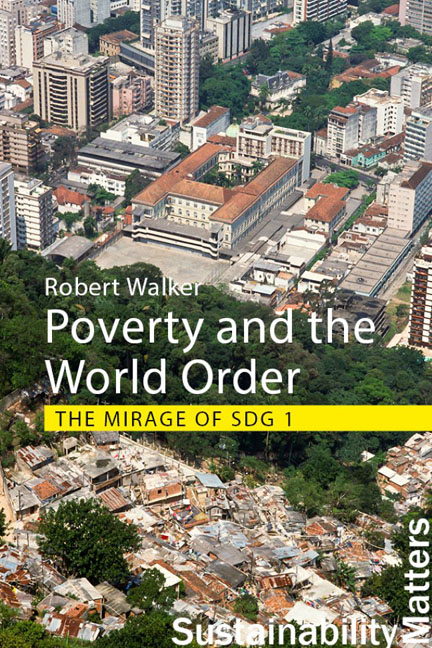Book contents
- Frontmatter
- Contents
- List of figures, tables and case studies
- 1 SDG1 and the nature of poverty
- 2 Progress to 2015
- 3 The origins of SDG1
- 4 Progress since 2015
- 5 The impact of Covid-19
- 6 Tackling the root causes of poverty
- 7 Global governance and its limitations
- 8 Relying on “we the people”
- 9 Towards a moral world order
- 10 A postscript
- Glossary
- References
- Index
8 - Relying on “we the people”
Published online by Cambridge University Press: 23 January 2024
- Frontmatter
- Contents
- List of figures, tables and case studies
- 1 SDG1 and the nature of poverty
- 2 Progress to 2015
- 3 The origins of SDG1
- 4 Progress since 2015
- 5 The impact of Covid-19
- 6 Tackling the root causes of poverty
- 7 Global governance and its limitations
- 8 Relying on “we the people”
- 9 Towards a moral world order
- 10 A postscript
- Glossary
- References
- Index
Summary
As explained, achieving SDG1 requires concerted action by national governments and a global partnership that entails the developed world providing financial and other support to less developed countries. However, there is no obligation on national governments to achieve SDG1 nor, as discovered in Chapter 7, much evidence to date that richer countries will actively assist less developed countries in their efforts to eradicate poverty. Aware of this reality, the architects of the SDGs, as noted in Chapter 1, placed their hope in the world's people. The vision was that “We the people” would join in a common mission, demanding that governments put an end to all forms of poverty. A lot, therefore, is resting on “we the people”.
The dependency on the people reflects both the extreme weakness of global governance and the propensity of intergovernmental organizations, when captured by rich countries, to exacerbate world poverty. As UN Secretary-General António Guterres explained to the General Assembly in January 2022: “The global financial system is morally bankrupt. It favours the rich and punishes the poor.”
The United Nations itself, as explained in Chapter 7, although having moral authority as an assembly of nominally equal states, is often riven by divisions and an arena for geopolitical competition with nations vying for the status of “primus inter pares”, first among equals. Launching the SDGs, the hope was that “We the people” could disrupt this competition, disempower the rich nations that have traditionally shaped policies to further their own interests, and demand policies that benefit the planet's majority.
It is far from clear, however, that the people can be relied upon to demand the eradication of poverty. A simple Google search (28 November 2021), “support for the SDGs”, generated some 239 million hits and was headed by paid advertisements by organizations offering support in raising funds or soliciting contributions to support work in relation to the SDGs. Searches have increased over time, which suggests growing interest, but ones relating to specific goals were relatively few in number and characterized by high variability, which does not speak to sustained concern (Figure 8.1).
- Type
- Chapter
- Information
- Poverty and the World OrderThe Mirage of SDG 1, pp. 155 - 174Publisher: Agenda PublishingPrint publication year: 2023



